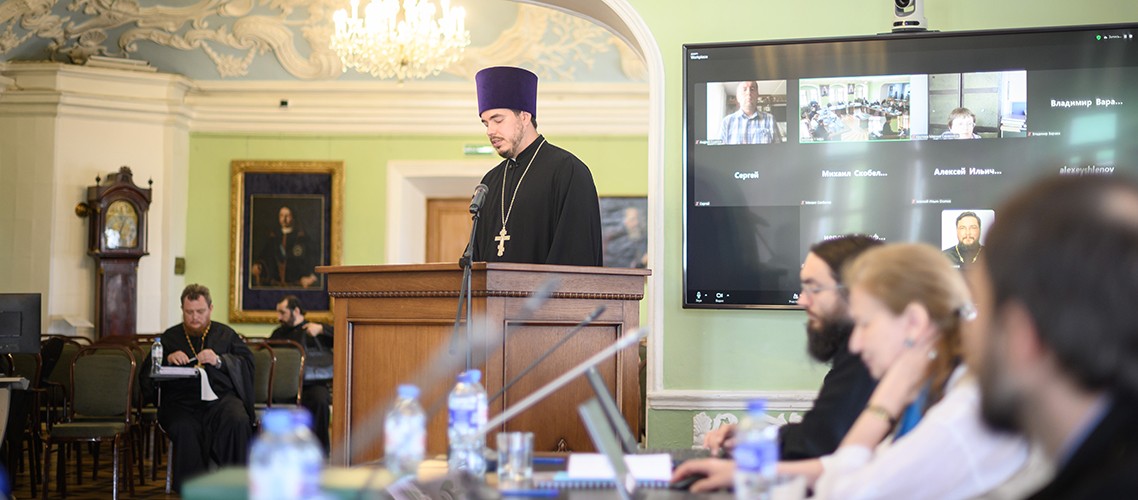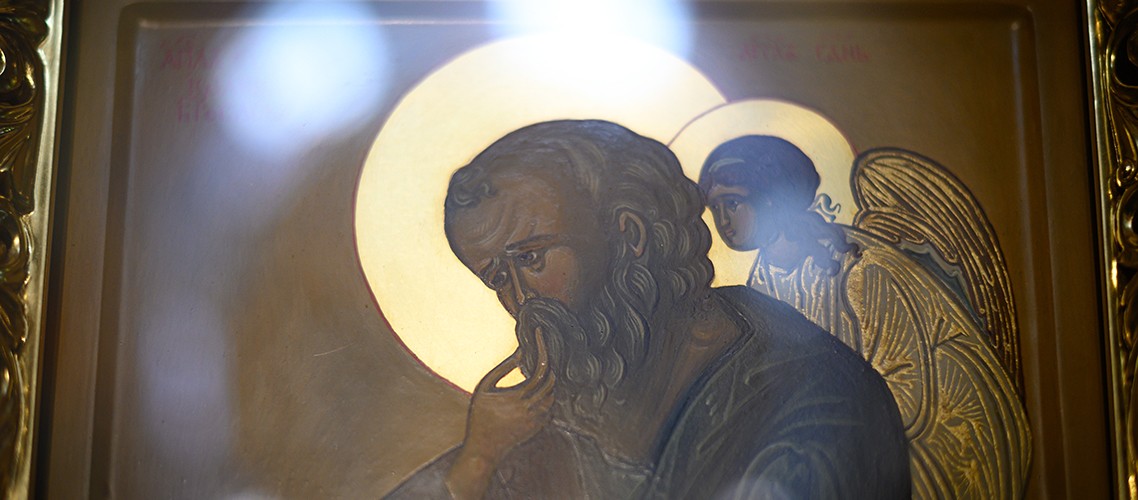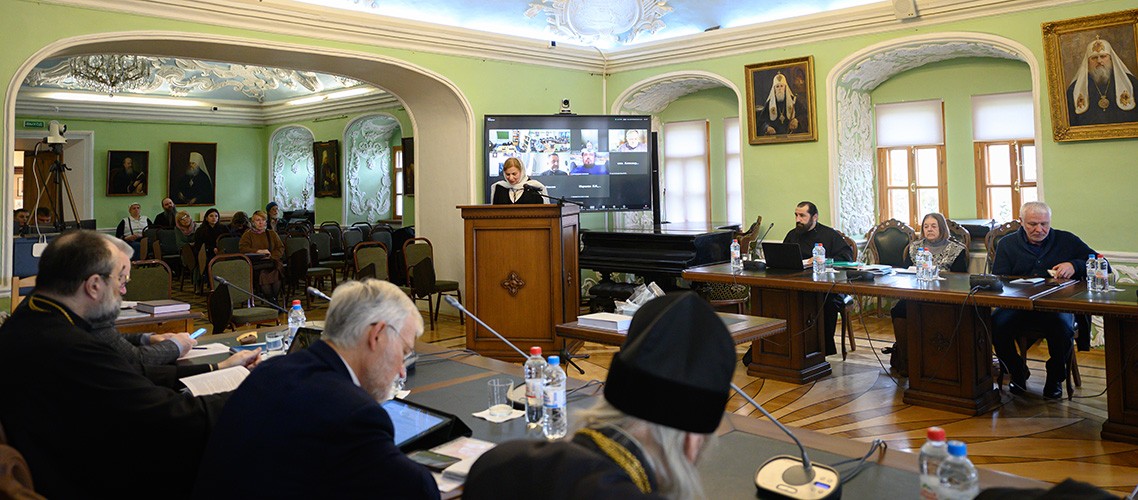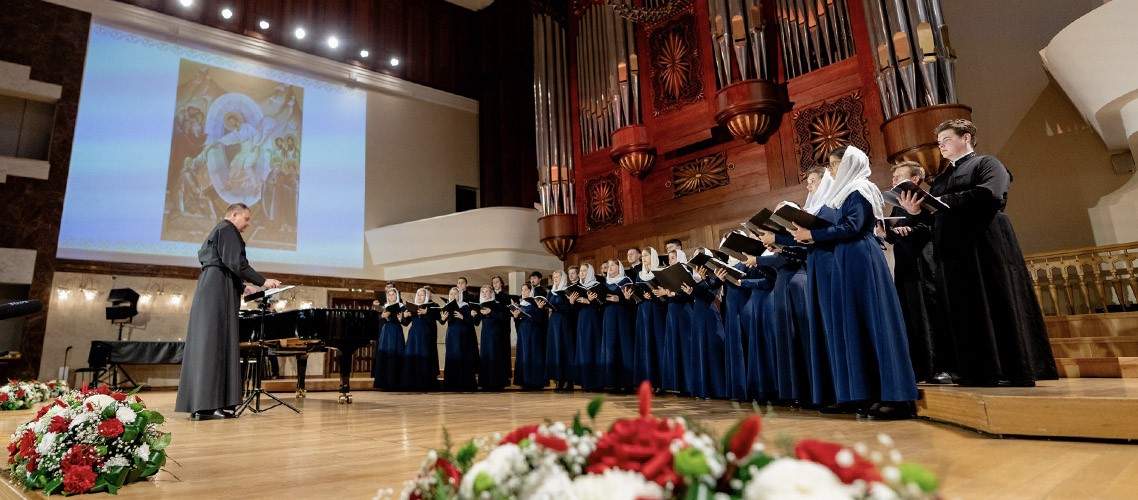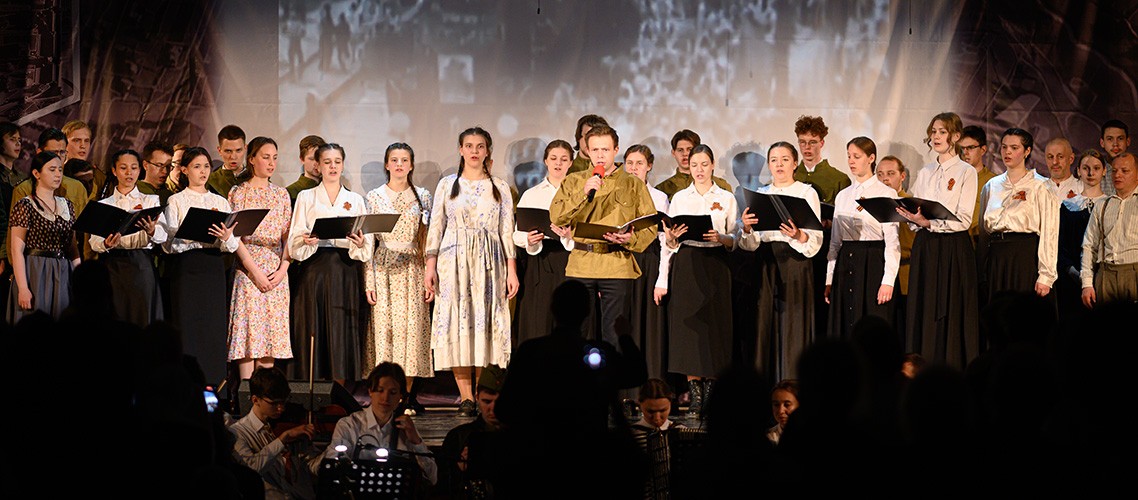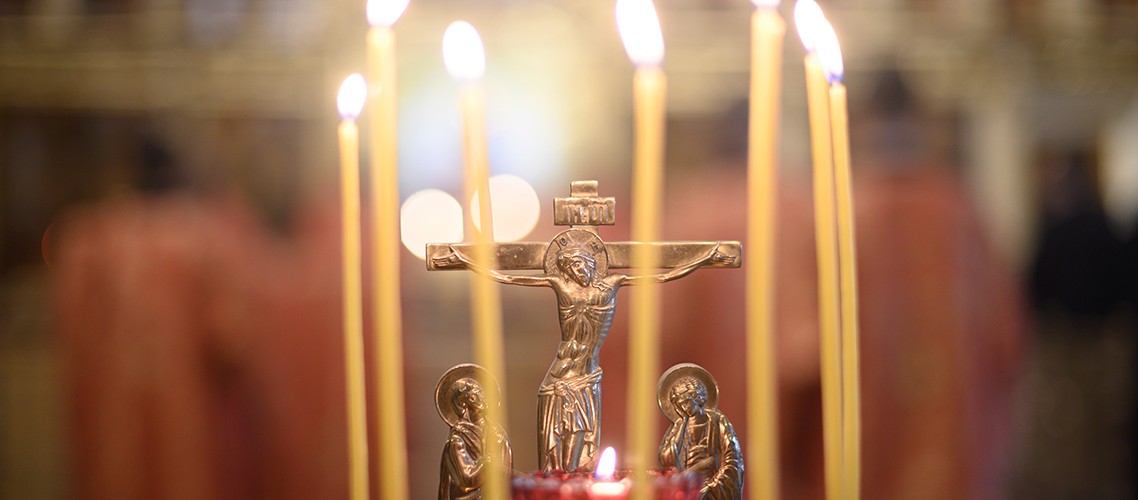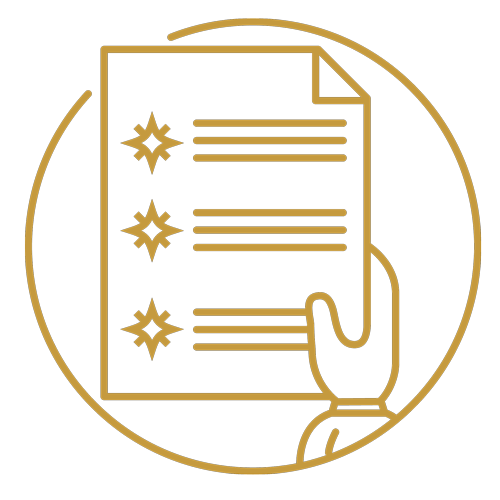News
28.05.2025
On 27 May 2025, a session of MThA’s Candidate Dissertation Council No. 1 (combining Departments of Biblical Studies, Theology, and Philology [Ancient Languages]) took place, featuring the successful defense of three candidate dissertations.
22.05.2025
On May 21, 2025, the feast day of the Apostle and Evangelist John the Theologian, the academic community commemorated the patron saint of theological education and celebrated the 70th anniversary of the great consecration of the Academy's house church.
13.05.2025
On May 12, 2025, in the Elizavetinsky Hall of the Moscow Theological Academy, R.M. Rupova defended her doctoral dissertation before the Joint Doctoral Dissertation Council.
11.05.2025
The Chamber Choir of Moscow Theological Academy participated as an invited ensemble in the IV All-Russian Choral Festival for choir conducting departments of theological schools of the Russian Orthodox Church, dedicated to the works of D.S. Bortniansky.
11.05.2025
On the occasion of the Victory Day celebration on May 9, a theatrical concert "Grant Us Forgiveness and Victory!" was held in the Great Hall of the MThA.
10.05.2025
On May 9, 2025, the Divine Liturgy and a service of thanksgiving were celebrated in the Protection Church of the MThA on the occasion of the 80th anniversary of victory in the Great Patriotic War. The service was led by Archimandrite Hilarion (Forkavets).
Publications
His Holiness Patriarch of Serbia Porfirije
Address by His Holiness Patriarch of Serbia Porfirije «On True Theology»
We present to your attention the address delivered by His Holiness Patriarch of Serbia, Porfirije, at the solemn ceremony of awarding His Holiness with an honorary doctorate from the Moscow Theological Academy. The address is preceded by words addressed to His Holiness Patriarch Kirill of Moscow and All Russia, the rector of MThA, Bishop Kirill of Sergiev Posad and Dmitrovsk, archpastors and pastors, professors, teachers, postgraduate students, students, and staff of the theological school.
We gave teachers a certain level of freedom in choosing the form of lessons.
Due to the coronavirus prevention acts, the Moscow Theological Academy switched to distance learning. Priest Pavel Lizgunov, Vice-Rector for Academic work, commented on how the theological education is implemented in a new form.
Academic church of the Intercession of Theotokos celebrates its 150th anniversary
“Only God knows how many good and holy intentions have ripened here in prayer to serve Him and the Church”. An academic church in honour of the Intercession of Theotokos is 150 years old.
Prospective Students
Медиа
Soundcloud
Rutube
YouTube
ВКонтакте

